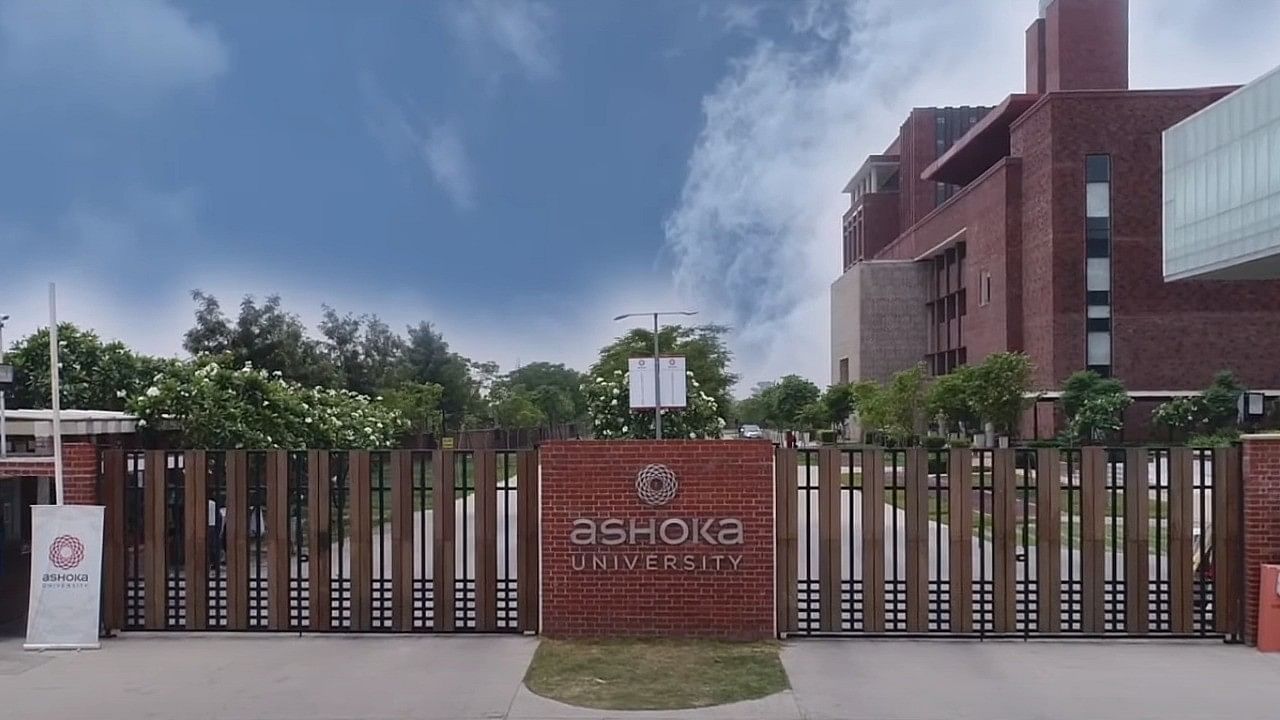
Ashoka University.
Credit: ashoka.edu.in.
Nested in a sprawling 25-acre campus in Haryana's Sonepat, Ashoka University, branded as a 'liberal arts hub', has courted a series of controversies already in its less-than-a-decade journey in the higher education space.
The latest being Assistant Professor Sabyasachi's resignation, following a political storm over his research paper that argued that the BJP won a disproportionate share of closely-contested parliamentary seats in the 2019 Lok Sabha polls, especially in states where it was the ruling party at the time.
The university's administration has distanced itself from the research, saying that social media activity or public activism by Ashoka faculty, students or staff in their 'individual capacity' does not reflect its stand.
However, the administration's stand has not gone down well with the faculty brass. While another professor, Pulapre Balakrishnan, has put in his papers in support of Das, the faculty members from Economics, Political Science, English and Creative Writing Departments have written to the Governing Body, threatening a faculty exodus if Das is not offered reinstatement. The faculty members have also warned of stopping all teaching activity till their demands are met.
Drawing from Emperor Ashoka's life of learning and transformation, Ashoka University was set up in 2014 with an aim to provide 'holistic education that is liberal, multidisciplinary, and interdisciplinary, offering a diverse and inclusive space for its students to think deeply and critically, learn across disciplinary boundaries, express themselves creatively, and communicate with meaning to cause impact and change".
While the varsity website says that students at Ashoka are encouraged to explore ideas, engage in research, and focus on values and ideals of the highest order, allegations about the campus not being a 'free space' have been raised often.
The controversy around Das' resignation is not new.
Political commentator Pratap Bhanu Mehta had in 2021 resigned as Vice-Chancellor of the university, stating that the founders had made it 'abundantly clear' that his association with the institution was a 'political liability'.
Noted economist and the founding director of the new Ashoka Center for Economic Policy, Arun Subramaniam, too, resigned following the developments that led to Mehta putting down in his papers.
In his letter to the university, he raised concern "that even Ashoka-with its private status and backing by private capital - can no longer provide a space for academic expression and freedom, is ominously disturbing".
When students boycotted classes and demanded that Mehta and Subramaniam be brought back, the university acknowledged 'lapses in institutional processes' and expressed 'deep regret' at the events surrounding the resignations of Mehta and Subramanian from its faculty.
The varsity has 2800 plus students on campus, drawn from 28 states and over 287 cities in India and 21 other countries. The varsity had last year announced that is expanding its science department with a dedicated campus coming up next to the main one at Sonepat's Rajiv Gandhi Education City.